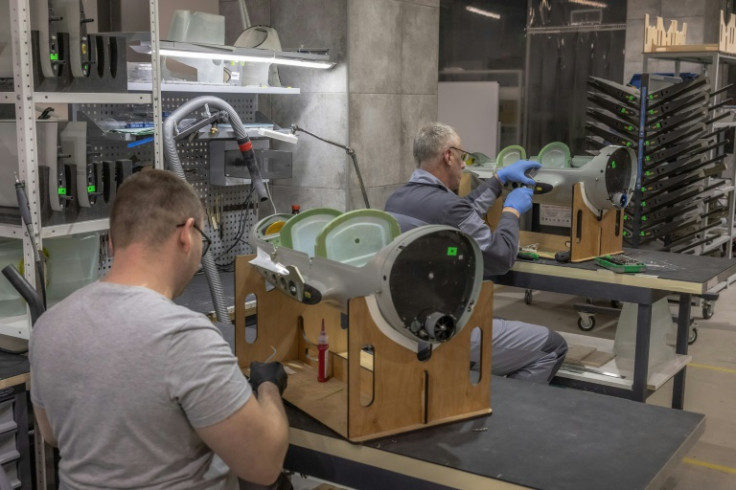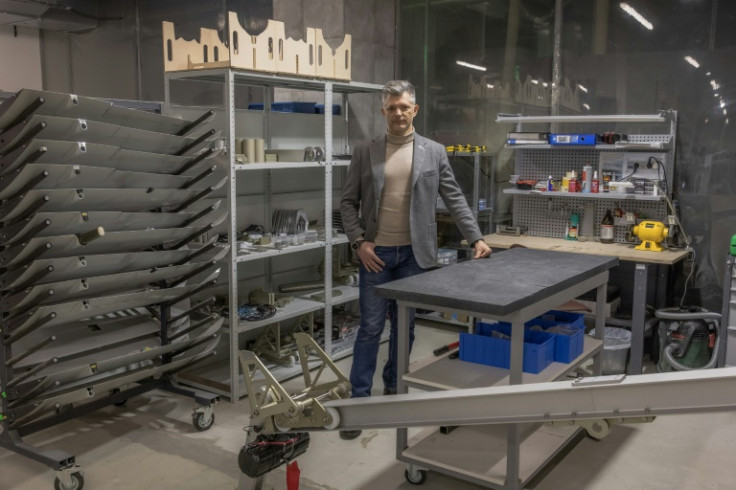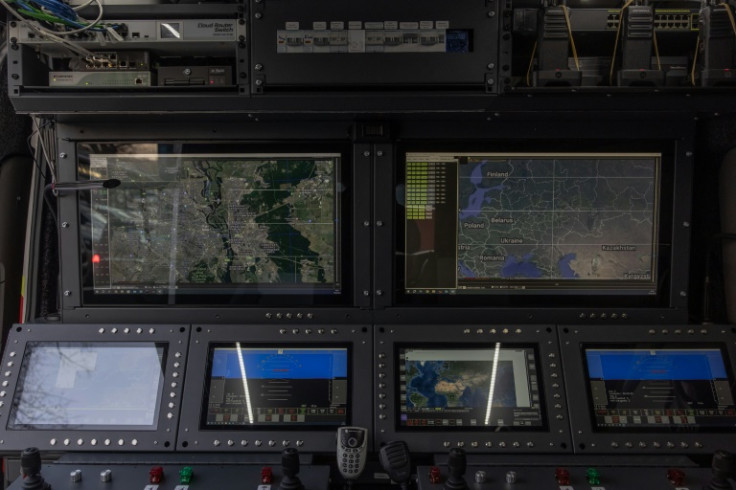Ukraine's Drone Industry Seeks To Tip Scales Against Russia

With suit-clad employees sipping coffees, Skyeton's offices in Ukraine's Kyiv region look like a typical tech start-up.
But the company -- whose exact location is kept secret -- is actually a drone-manufacturing hub for the Ukrainian armed forces, churning out unmanned aerial vehicles (UAVs) to support the country's defence against the Russian invasion.
"This is a drone war," Skyeton CEO Andriy Fialkovsky told AFP in an interview.
Both Ukraine and Russia have used UAVs extensively throughout the two-year conflict.
Above the battlefield in the east and south, drones fitted with high-definition cameras scope out enemy positions. At night, craft packed with explosives try to strike targets deep behind the frontlines.
Skyeton manufactures the Raybird, a long-range surveillance drone that can fly up to 2,500 kilometres (1,550 miles) in offline mode, and up to 120 kilometres while connected to an operator.
For Technical Director Maksym Levkivsky, drones will be crucial to Ukraine's chances of victory.
"The Russians have a huge advantage in terms of the number of people, tanks, planes and money," he said.
"So the only way for us to win is to have a technological advantage."
Ukraine is striving to ramp up its defence production, an effort it sees as essential as Western allies waver over providing additional vital military aid.
But developing an entire modern arms industry is a costly, long-term task.
For now, Kyiv is banking on drones that are relatively cheap and easy to manufacture, with President Volodymyr Zelensky setting a goal of producing one million units this year.
Fialkovsky said more domestic production also allowed Ukraine to respond quickly to developments on the front lines.
"Ukraine is unfortunately the biggest playground in the world" in terms of weapons, he said, but "nobody except us knows which equipment, which technologies we need."
Levkivsky served in the Ukrainian army, and the company wants to recruit more veterans.
Would-be employees have to pass a background check, with Ukraine's arms industry a prime target for Russian espionage and sabotage.
"We are constantly under the risk of being hit," Levkivsky added.
Skyeton's production is spread across several sites to make it less vulnerable, a common approach in the sector.
Working under bright white neon lights, around 10 employees were assembling drones at the Skyeton factory. Filming or photographing their faces was prohibited, another precautionary measure.
Nearby, other employees were testing and priming them for use. Every minute spent setting up in the field exposes soldiers to enemy fire, making rapid and successful launches essential, Levkivsky said.
The number of Ukrainian drone manufacturers has more than doubled to around 200 since Russia invaded in February 2022, according to the Ukrainian authorities.
"There was a massive boom last year, when they just grew like mushrooms," said Vadym Yunyk, chair of a nationwide association of drone manufacturers and co-founder of drone maker ISR Defence.
Despite the production surge, Kyiv is still not self-sufficient, especially with regards to microcircuits and chips that need to be imported.
"It is currently impossible to assemble a 100 percent Ukrainian drone," Yunyk said.
Drone types also vary greatly, from cheap self-detonating kamikazes to more sophisticated multi-use craft.
ISR Defence's R18 can drop explosives over enemy targets or be used to transport ammunition or supplies to soldiers on the frontlines, when delivery over land is too dangerous.
And Vampire combat drones, produced by a company of the same name, were used to deliver medicine and food to stranded villages flooded after the Kakhovka dam explosion in southern Ukraine last year.
As the war drags into its third year, Ukrainian producers say they are locked in an innovation battle against their Russian rivals.
"They are learning to better disguise their UAVs, and we are learning to better recognise and neutralise them", said a spokesperson for Vampire, whose name was withheld for security reasons.
Fearful of providing Russia with valuable intelligence, drone makers keep their cards close to their chest regarding coming inventions and upgrades.
Skyeton said it was banking on artificial intelligence to help improve navigation and better detect enemy positions.
Drone makers hope more advanced technology can tip the balance of the conflict in Ukraine's favour and make up for Kyiv's manpower shortages.
"Europe, with all its desire to help, can only help with weapons -- but no one will give us people", Yunyk said.
"You can have a warehouse of weapons, but if there is no one to shoot them, then they are useless."
But Yunyk also noted that a "flock of drones" can be controlled by just one person.
"That's why we need to invest in this with all our might."



© Copyright AFP 2025. All rights reserved.





















